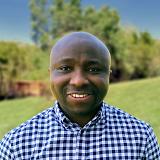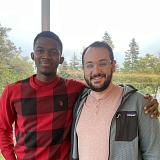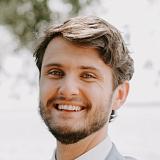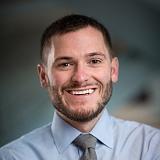
Our Research to Advance Health Equity
Our department is dedicated to conducting research that promotes health equity for all individuals.
We recognize that disparities in healthcare and health outcomes exist, and we are committed to identifying and addressing the root causes of these disparities through rigorous scientific inquiry. Through collaborative partnerships with communities and other organizations, the Department of Population Health Sciences strives to promote health equity and improve the health of all individuals.
Kayleigh Lawson-Michod
I am Kayleigh Lawson-Michod, a molecular epidemiologist specializing in cancer genomics and health disparities. My research focuses on understanding the genetic, molecular, and environmental determinants of ovarian cancer survival, with an emphasis on addressing racial disparities in survival. By leveraging molecular and epidemiologic methods, I aim to uncover mechanisms that drive inequities in cancer outcomes.
Who are your partners?
My research involves collaborations with transdisciplinary teams across institutions, including the African American Cancer Epidemiology Study (AACES) and the North Carolina Ovarian Cancer Study (NCOCS). These partnerships provide access to rich genomic and clinical data, enabling groundbreaking studies on cancer genomics in underrepresented populations. I collaborate closely with Dr. Jennifer Doherty at the Huntsman Cancer Institute to explore ovarian cancer disparities and our larger collaborative groups includes scientists from the University of Colorado, Emory, Moffitt, MD Anderson, and Dartmouth.
What is something you’re proud of in your work?
I am proud of advancing representation in ovarian cancer research, particularly by characterizing molecular features among Black individuals. My work has identified potential important differences, such as a higher prevalence of homologous recombination deficiency among Black individuals with high-grade serous ovarian cancer. This finding if validated has the potential to inform clinical decision making and contribute to equity in cancer genomics, where historically underserved populations are underrepresented.

What is something you’re excited about?
I am excited about expanding our understanding of how social and structural determinants of health intersect with somatic tumor features. Integrating genomic data with social determinants offers novel insights into disparities and has the potential to improve survival outcomes for marginalized groups. This interdisciplinary approach inspires me to push the boundaries of what’s possible in cancer research.
What brought you to the PHS?
My passion for population health began as an undergraduate researcher, where I studied the evolutionary biology of infectious diseases. Later, my growing interest in health disparities and cancer genomics led me to pursue training in public health and epidemiology. The collaborative environment at the Population Health Sciences (PHS) Department and its commitment to equity-driven research solidified my decision to join.
What does a perfect weekend look like for you?
A perfect weekend includes a long bike ride with my partner, quality time with our dog, and exploring local food spots. I also enjoy indulging in creative cooking projects and relaxing with a good book or a documentary. These moments of balance and joy recharge me for the week ahead.







